
IN FOND MEMORY
CAROL METCALFE [d. 2025]
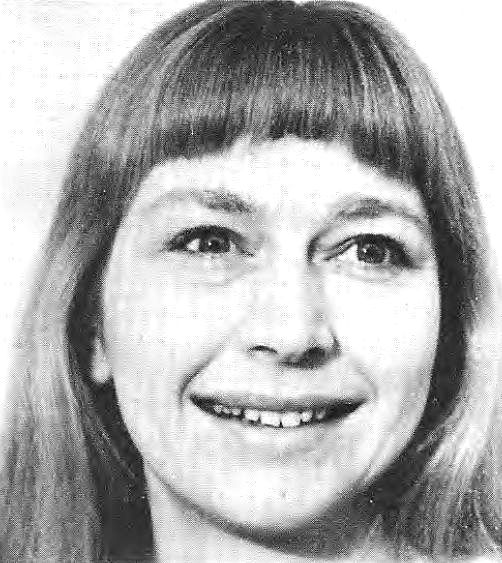 Howard Shepherdson writes:
Howard Shepherdson writes:
Carol Metcalfe, the pioneering director and founder of the Bridewell Theatre and influential Questors member, has died.
Her star shone particularly bright across a decade or so at the turn of the century. Profiling her visionary zeal in 2000, the Guardian declared: “You can bet that where the Bridewell dares, the West End may eventually find the nerve to follow.” This same pioneering theatrical spirit had a profound influence on Questors theatre.
Born in Glasgow in the late 1930s, Carol’s early life was shaped by resilience and invention. Her father, a Clydeside shipbuilder during the depression cajoled his fellow unemployed colleagues to form a theatre group, the Labour Exchange Players, laying the groundwork for his daughter’s lifelong belief in the transformative power of theatre. Despite his insistence that theatre should remain a hobby for his daughter, her love for the stage remained a lifelong passion.
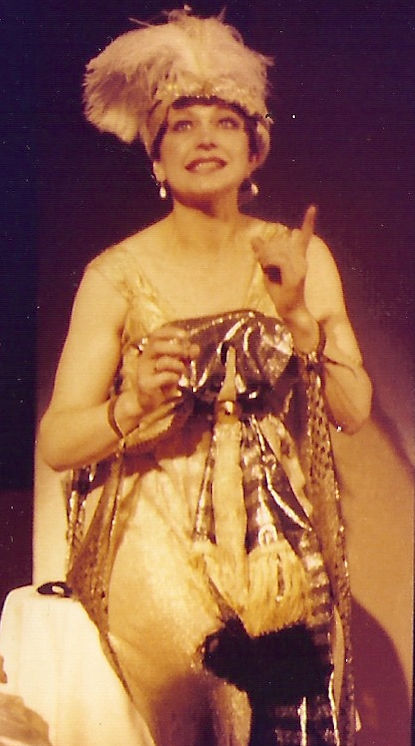 After an early career in education and raising a family, carol joined the Questors Theatre in the late 1960s and began to make an immediate impact as an actor, singer and designer. She later went on to become a director at Questors, sat on the board of Trustees and also worked as Assistant Artistic Director. Her productions were always challenging, honest and beautifully displayed the power of live theatre. They also showcased her love of music theatre and Shakespeare which became her great passions.
After an early career in education and raising a family, carol joined the Questors Theatre in the late 1960s and began to make an immediate impact as an actor, singer and designer. She later went on to become a director at Questors, sat on the board of Trustees and also worked as Assistant Artistic Director. Her productions were always challenging, honest and beautifully displayed the power of live theatre. They also showcased her love of music theatre and Shakespeare which became her great passions.
Carol’s successes at Questors were many. Aside from her talents as an actor and director she had a great singing voice. Many will remember her as the outstanding singer in Lark Rise and the mature love interest in Sand Wilson’s The Boyfriend. She was fascinated with the original Beaumarchais Figaro plays which were a delight to see at Questors outside their opera context. It was even more impressive that she managed to take them to Edinburgh to great artistic acclaim.
I had the privilege of being cast in two of her productions, the first being an original musical written by the late Gordon Caleb called Somewhere in England and the second Threepenny Opera by Bertold Brecht. It is interesting to note that when asked during an interview with What’s On Stage which production she was most proud of, she named “Threepenny Opera”. It was very moving that after years of success in her professional career, she still valued her time at Questors and saw it as a memorable artistic achievement.
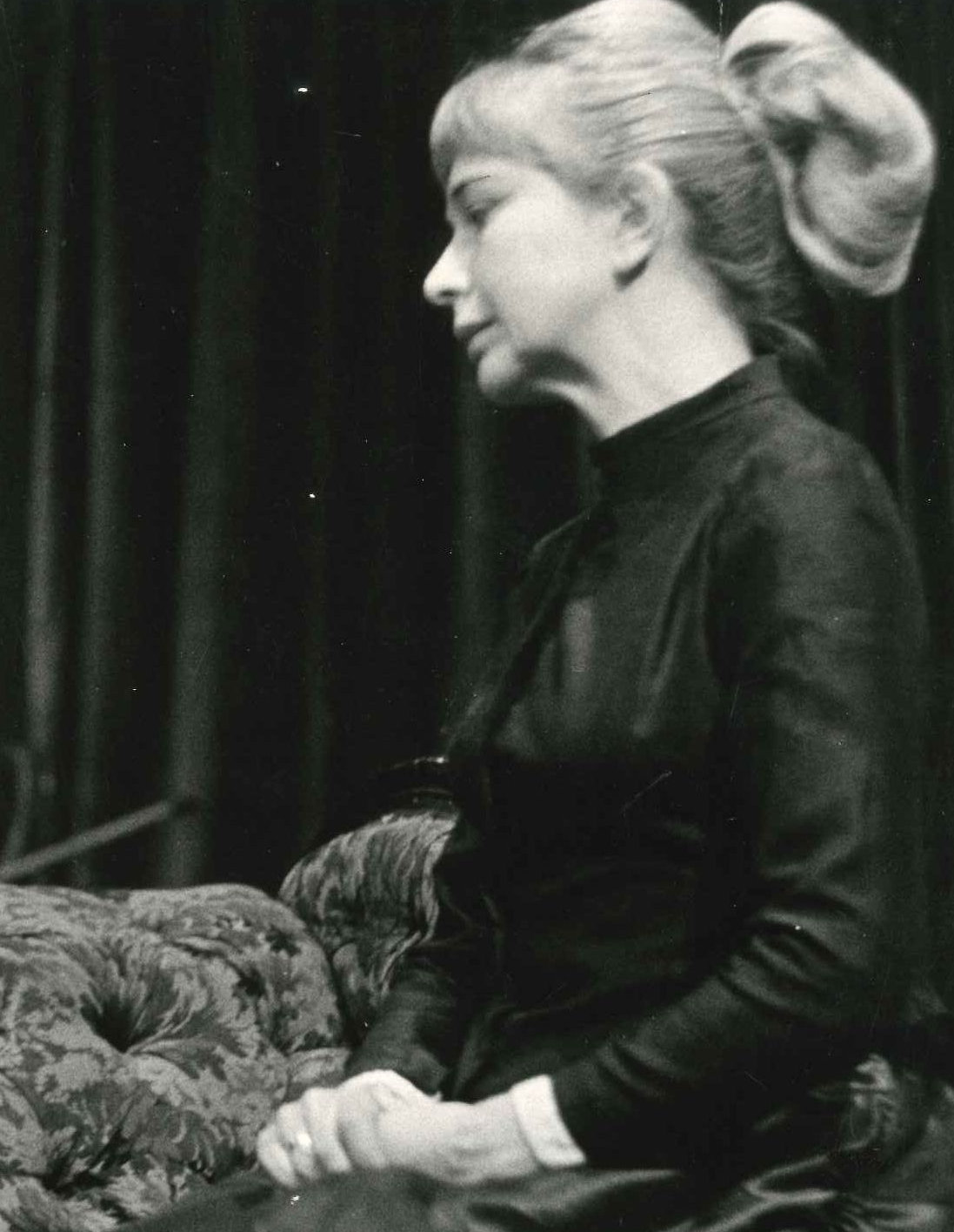 It was in 1994 that Carol fully embraced her dream. Searching for a venue for her fledgling theatre company Breach of the Piece (later the Bridewell Theatre Company), she stumbled across a derelict, rat infested, forgotten Victorian swimming pool near Fleet Street. It was indeed her own Questors production of “Much Ado” that she used to try out the venue. Much Ado was a showcase to raise funds to convert the space into a proper theatre. And it worked. Against the odds, she persuaded the St Bride Foundation to transform it into a new theatre space and allow her to run it as a fringe venue and producing house. The Bridewell was born.
It was in 1994 that Carol fully embraced her dream. Searching for a venue for her fledgling theatre company Breach of the Piece (later the Bridewell Theatre Company), she stumbled across a derelict, rat infested, forgotten Victorian swimming pool near Fleet Street. It was indeed her own Questors production of “Much Ado” that she used to try out the venue. Much Ado was a showcase to raise funds to convert the space into a proper theatre. And it worked. Against the odds, she persuaded the St Bride Foundation to transform it into a new theatre space and allow her to run it as a fringe venue and producing house. The Bridewell was born.
With help from theatre collaborators Clive Paget (a Questors acting member) and Tim Sawers, Carol created a crucible for new and rediscovered musicals. Her inaugural production, Pacific Overtures by Stephen Sondheim, set the tone: ambitious, intellectually rich, and cleverly staged in an intimate setting.
What followed was a string of landmark productions: Damn Yankees, On the Twentieth Century, On a Clear Day You Can See Forever, The Man Who Mistook His Wife for a Hat, Passion to name a few. In 1997, Carol’s powers of persuasion were put to good use again when Sondheim agreed to entrust Carol and Clive Paget to co-direct the world premiere of his first ever, but until then never produced musical, Saturday Night. It was a major artistic coup and triumph that placed the Bridewell on the international map.
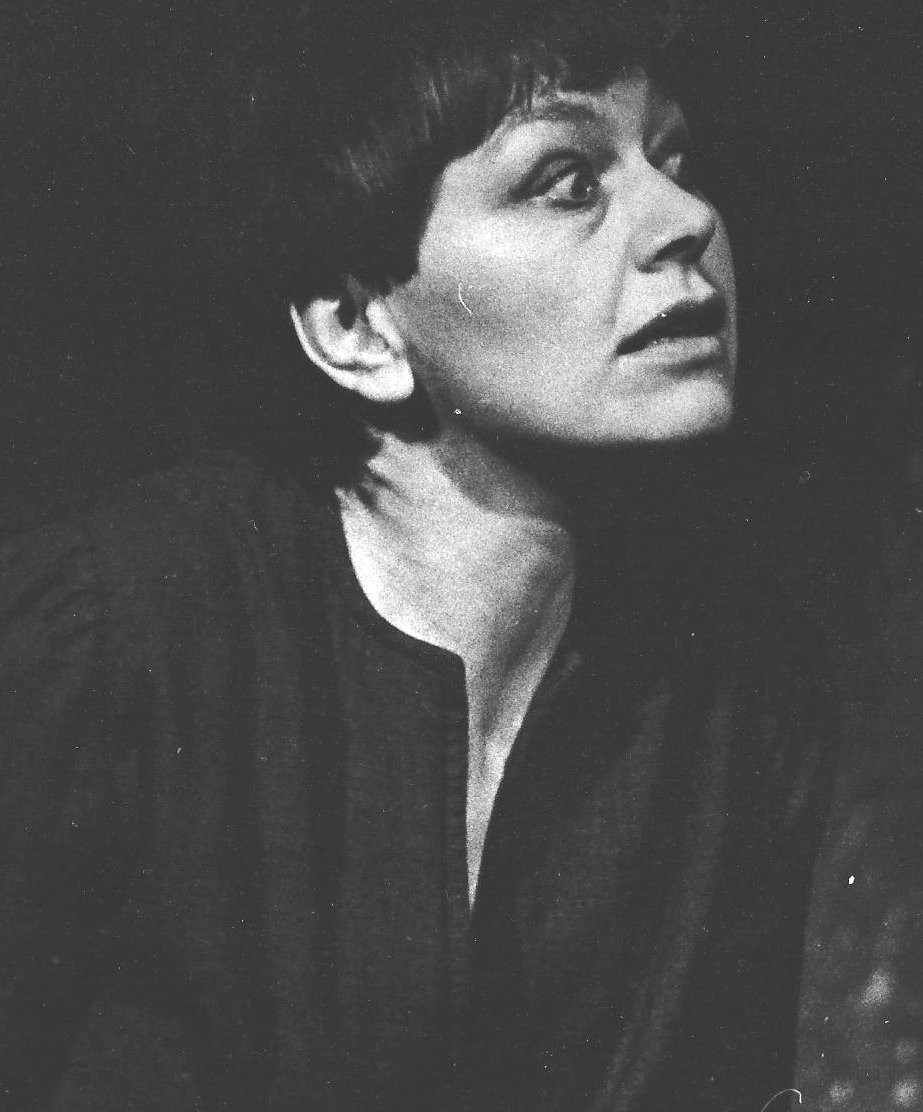 Carol always had her eye on the future too and quickly developed the Bridewell’s reputation as London’s most daring “musical laboratory.” She wanted her space not just to be one of rediscovery but of bold innovation. Under her guidance, the Bridewell became a haven for rising composers, staging British musical, Eyam by Andrew Peggie and Stephen Clark, the British premieres of Adam Guettel’s Floyd Collins, Michael John LaChiusa’s Hello Again, Jason Robert Brown’s Songs for a New World, The Ballad of Little Jo and Re: Love.
The cream of West End talent lined up to perform there. Just as playwrights sent their scripts to the Royal Court, it was to the Bridewell that musical theatre writers sent their tapes.
Carol always had her eye on the future too and quickly developed the Bridewell’s reputation as London’s most daring “musical laboratory.” She wanted her space not just to be one of rediscovery but of bold innovation. Under her guidance, the Bridewell became a haven for rising composers, staging British musical, Eyam by Andrew Peggie and Stephen Clark, the British premieres of Adam Guettel’s Floyd Collins, Michael John LaChiusa’s Hello Again, Jason Robert Brown’s Songs for a New World, The Ballad of Little Jo and Re: Love.
The cream of West End talent lined up to perform there. Just as playwrights sent their scripts to the Royal Court, it was to the Bridewell that musical theatre writers sent their tapes.
Carol’s vision was deeply rooted in the notion that musicals, at their best, “bare the bits that the words can’t bare.” She believed music could speak what was unspeakable - and she built a theatre to do just that. For more than ten years, she programmed year-round seasons of productions playing 8 shows a week, gave countless artists and those who support them important opportunities, oversaw an active youth theatre, and created lunchtime productions for local workers which cemented the Bridewell’s place in the City of London community.
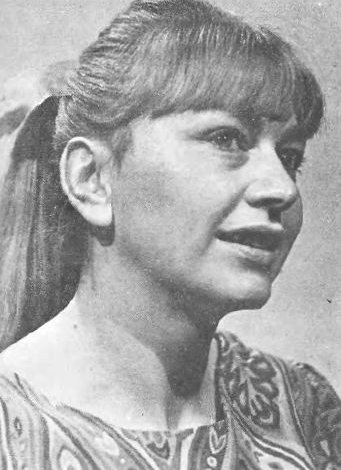 Running a fringe venue is a perilous business at the best of times and anyone committed to developing that most costly of forms, the musical, required courage, energy and intelligent flair. She was blessed with it all in spades and was a fearless advocate for the sector. At a time when the form received minimal public funding, she fought with all she had, even standing before the Culture, Media and Sport Parliamentary Select Committee to advocate for it. But after an exhilarating but exhausting decade, changes to lease arrangements and a lack of support for core funding left no alternative but to close the theatre in 2005.
After the loss of her theatre, her purpose never wavered. Carol continued to help composers, directors and producers find ways to bring new work to life across the UK, this included freelance work for Cameron Mackintosh developing new musical talent in Scotland and working for the Arts Council as a music theatre talent scout. There was even a West End production of Sweet Charity at the Victoria Place Theatre staring Bonnie Langford in 1998.
Running a fringe venue is a perilous business at the best of times and anyone committed to developing that most costly of forms, the musical, required courage, energy and intelligent flair. She was blessed with it all in spades and was a fearless advocate for the sector. At a time when the form received minimal public funding, she fought with all she had, even standing before the Culture, Media and Sport Parliamentary Select Committee to advocate for it. But after an exhilarating but exhausting decade, changes to lease arrangements and a lack of support for core funding left no alternative but to close the theatre in 2005.
After the loss of her theatre, her purpose never wavered. Carol continued to help composers, directors and producers find ways to bring new work to life across the UK, this included freelance work for Cameron Mackintosh developing new musical talent in Scotland and working for the Arts Council as a music theatre talent scout. There was even a West End production of Sweet Charity at the Victoria Place Theatre staring Bonnie Langford in 1998.
Carol’s final years were tragically lost to a long and isolating illness. She will be sadly missed by her many Questors friends and the many people who loved and respected her in the professional theatre.

 Howard Shepherdson writes:
Howard Shepherdson writes: After an early career in education and raising a family, carol joined the Questors Theatre in the late 1960s and began to make an immediate impact as an actor, singer and designer. She later went on to become a director at Questors, sat on the board of Trustees and also worked as Assistant Artistic Director. Her productions were always challenging, honest and beautifully displayed the power of live theatre. They also showcased her love of music theatre and Shakespeare which became her great passions.
After an early career in education and raising a family, carol joined the Questors Theatre in the late 1960s and began to make an immediate impact as an actor, singer and designer. She later went on to become a director at Questors, sat on the board of Trustees and also worked as Assistant Artistic Director. Her productions were always challenging, honest and beautifully displayed the power of live theatre. They also showcased her love of music theatre and Shakespeare which became her great passions. It was in 1994 that Carol fully embraced her dream. Searching for a venue for her fledgling theatre company Breach of the Piece (later the Bridewell Theatre Company), she stumbled across a derelict, rat infested, forgotten Victorian swimming pool near Fleet Street. It was indeed her own Questors production of “Much Ado” that she used to try out the venue. Much Ado was a showcase to raise funds to convert the space into a proper theatre. And it worked. Against the odds, she persuaded the St Bride Foundation to transform it into a new theatre space and allow her to run it as a fringe venue and producing house. The Bridewell was born.
It was in 1994 that Carol fully embraced her dream. Searching for a venue for her fledgling theatre company Breach of the Piece (later the Bridewell Theatre Company), she stumbled across a derelict, rat infested, forgotten Victorian swimming pool near Fleet Street. It was indeed her own Questors production of “Much Ado” that she used to try out the venue. Much Ado was a showcase to raise funds to convert the space into a proper theatre. And it worked. Against the odds, she persuaded the St Bride Foundation to transform it into a new theatre space and allow her to run it as a fringe venue and producing house. The Bridewell was born. Carol always had her eye on the future too and quickly developed the Bridewell’s reputation as London’s most daring “musical laboratory.” She wanted her space not just to be one of rediscovery but of bold innovation. Under her guidance, the Bridewell became a haven for rising composers, staging British musical, Eyam by Andrew Peggie and Stephen Clark, the British premieres of Adam Guettel’s Floyd Collins, Michael John LaChiusa’s Hello Again, Jason Robert Brown’s Songs for a New World, The Ballad of Little Jo and Re: Love.
The cream of West End talent lined up to perform there. Just as playwrights sent their scripts to the Royal Court, it was to the Bridewell that musical theatre writers sent their tapes.
Carol always had her eye on the future too and quickly developed the Bridewell’s reputation as London’s most daring “musical laboratory.” She wanted her space not just to be one of rediscovery but of bold innovation. Under her guidance, the Bridewell became a haven for rising composers, staging British musical, Eyam by Andrew Peggie and Stephen Clark, the British premieres of Adam Guettel’s Floyd Collins, Michael John LaChiusa’s Hello Again, Jason Robert Brown’s Songs for a New World, The Ballad of Little Jo and Re: Love.
The cream of West End talent lined up to perform there. Just as playwrights sent their scripts to the Royal Court, it was to the Bridewell that musical theatre writers sent their tapes. Running a fringe venue is a perilous business at the best of times and anyone committed to developing that most costly of forms, the musical, required courage, energy and intelligent flair. She was blessed with it all in spades and was a fearless advocate for the sector. At a time when the form received minimal public funding, she fought with all she had, even standing before the Culture, Media and Sport Parliamentary Select Committee to advocate for it. But after an exhilarating but exhausting decade, changes to lease arrangements and a lack of support for core funding left no alternative but to close the theatre in 2005.
After the loss of her theatre, her purpose never wavered. Carol continued to help composers, directors and producers find ways to bring new work to life across the UK, this included freelance work for Cameron Mackintosh developing new musical talent in Scotland and working for the Arts Council as a music theatre talent scout. There was even a West End production of Sweet Charity at the Victoria Place Theatre staring Bonnie Langford in 1998.
Running a fringe venue is a perilous business at the best of times and anyone committed to developing that most costly of forms, the musical, required courage, energy and intelligent flair. She was blessed with it all in spades and was a fearless advocate for the sector. At a time when the form received minimal public funding, she fought with all she had, even standing before the Culture, Media and Sport Parliamentary Select Committee to advocate for it. But after an exhilarating but exhausting decade, changes to lease arrangements and a lack of support for core funding left no alternative but to close the theatre in 2005.
After the loss of her theatre, her purpose never wavered. Carol continued to help composers, directors and producers find ways to bring new work to life across the UK, this included freelance work for Cameron Mackintosh developing new musical talent in Scotland and working for the Arts Council as a music theatre talent scout. There was even a West End production of Sweet Charity at the Victoria Place Theatre staring Bonnie Langford in 1998.